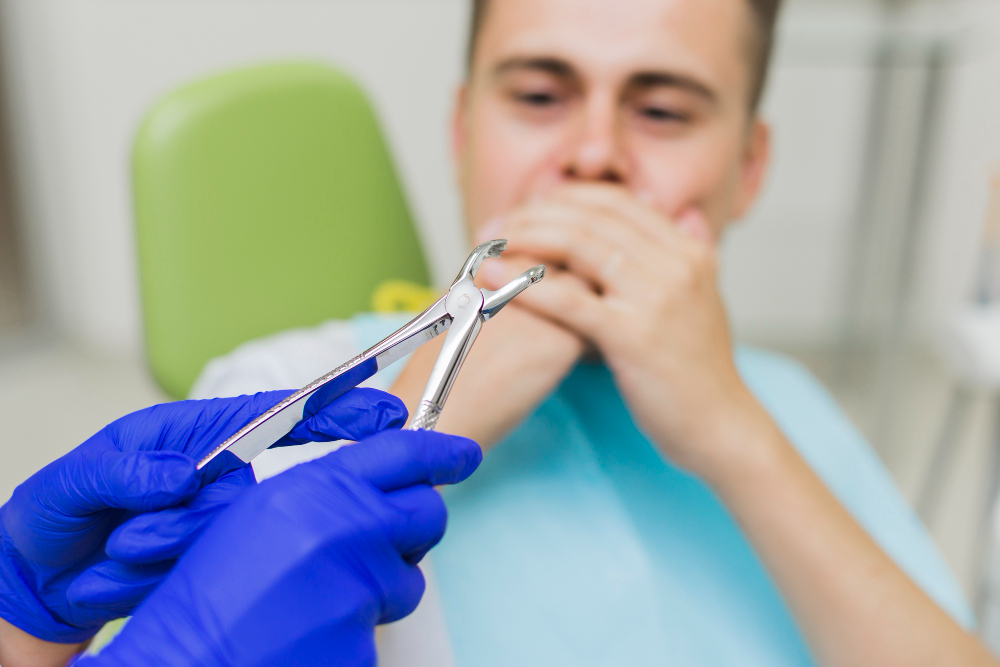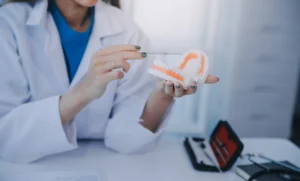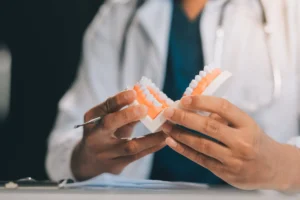Toothache is one of the most common yet debilitating types of pain one can experience. Surprisingly, one of the factors that can contribute to this discomfort is the habit of grinding one’s teeth.
This article explores the connection between tooth grinding and tooth pain, addressing a common question like “Can grinding teeth cause tooth pain?” and providing solutions for better oral health.
Key Takeaways
- Teeth grinding (bruxism) is a conscious or unconscious habit with serious oral health effects.
- Identifying the signs of bruxism and following the recommended appropriate preventive measures and treatments will help protect your oral health.
What is Teeth Grinding?
Teeth grinding, medically known as bruxism, involves clenching the jaw and grinding the top and bottom teeth back and forth against each other. This habit can occur both during the day and at night, with nighttime teeth grinding being less conscious and, therefore, often more challenging to control.
Can Teeth Grinding Cause Tooth Pain: What’s The Connection?
Teeth grinding exerts excessive force on the muscles, tissues, and other structures around the jaw. This pressure can lead to several issues that cause pain:
1. Enamel Wear
Constant grinding can wear down the enamel, the outer protective layer of the tooth. Thinner enamel increases the risk of tooth sensitivity and pain, especially when eating or drinking hot, cold, or sugary substances.
2. Fractures and Chips
The intense pressure from clenching and grinding can lead to fractures, chips, or cracks in the teeth. These imperfections not only alter the tooth’s appearance but can also be quite painful and lead to further dental complications if not addressed.
3. Temporomandibular Joint Disorder (TMD)
Frequent teeth grinding can strain the temporomandibular joint (TMJ), which connects the jawbone to the skull. Problems with the TMJ can lead to pain and discomfort in the jaw, face, and even the ears.
4. Gum Recession
The force from grinding can also cause the gums to recede. This gum recession exposes the roots of the teeth, leading to heightened sensitivity and pain.
5. Muscle Soreness
The muscles used to chew and grind can become sore and fatigued from overuse, leading to aching and discomfort that extends from the jaw to other areas of the face and neck.
Prevention and Management
Understanding that teeth grinding directly contributes to tooth pain is the first step in managing and preventing it.
Here are a few strategies you can implement:
- Wear a Mouthguard —A dentist-prescribed mouthguard can be worn at night to cushion your teeth and prevent grinding.
- Reduce Stress — Since stress is a common trigger for teeth grinding, engaging in relaxation techniques such as deep breathing or music and art therapy can be helpful.
- Avoid Hard Foods — Chewing on hard foods like candies or ice can exacerbate the symptoms of teeth grinding.
- Routine Dental Check-Ups — Regular visits to the dentist can help catch signs of bruxism early before significant damage occurs.
Get Effective Clenching and Grinding Therapy at Dixon Dental Center
Don’t let tooth pain and jaw discomfort disrupt your life! Visit us at Dixon Dental Center and let us help you find relief and preserve your dental health. We specialize in treating clenching and grinding (bruxism) with advanced techniques like NTI devices and splints to protect your smile and improve your sleep quality. Schedule your consultation today and look forward to a brighter, pain-free future!



